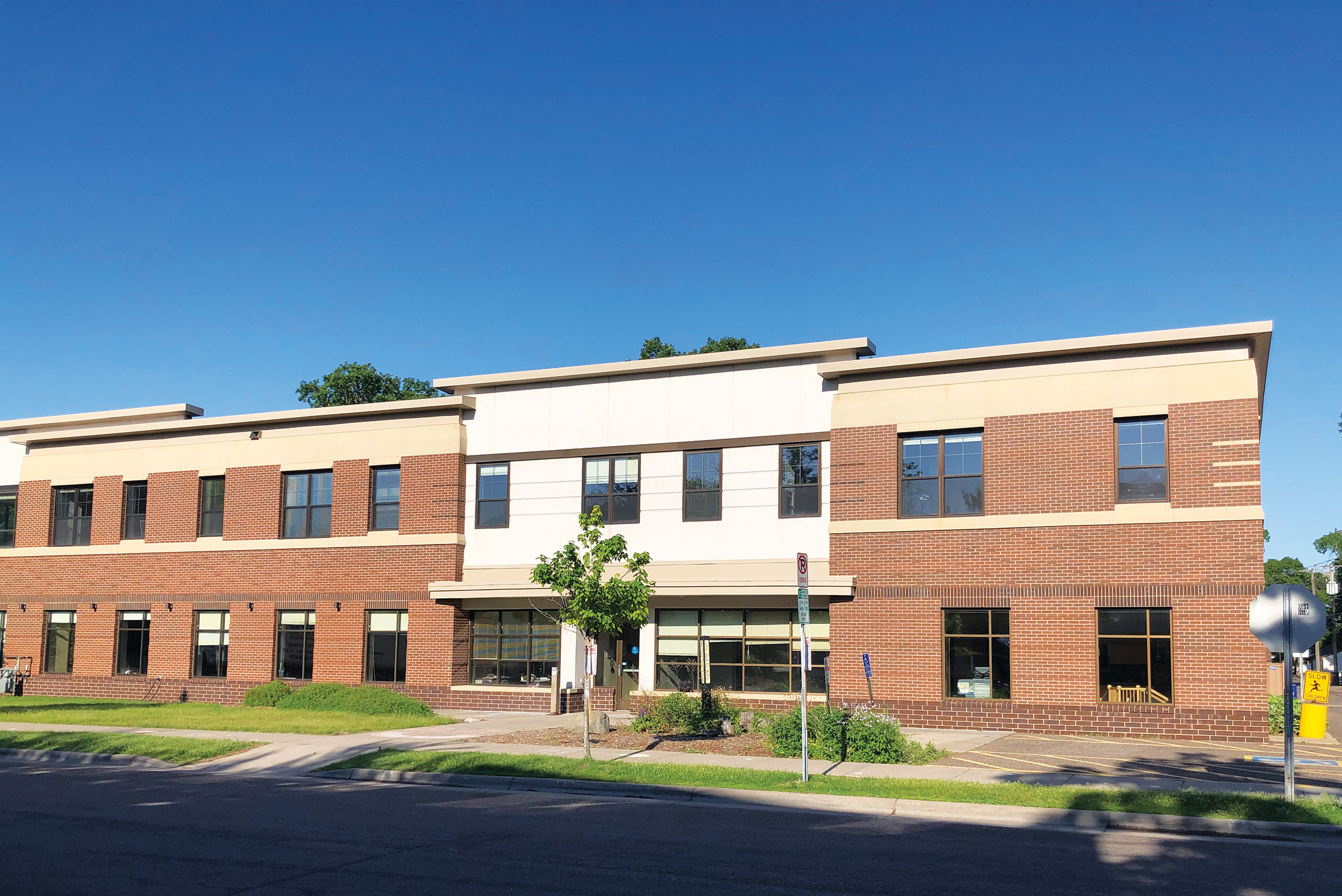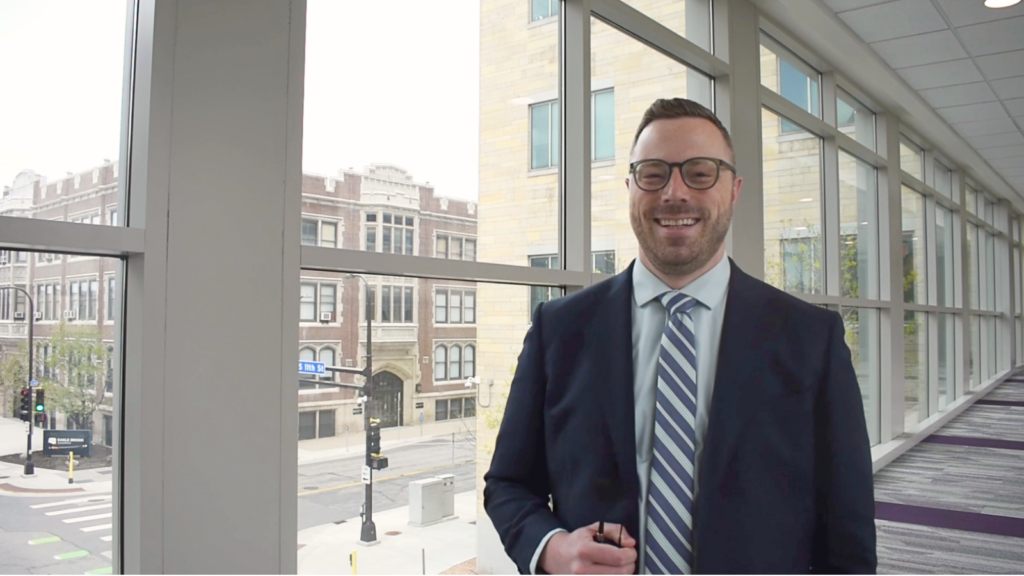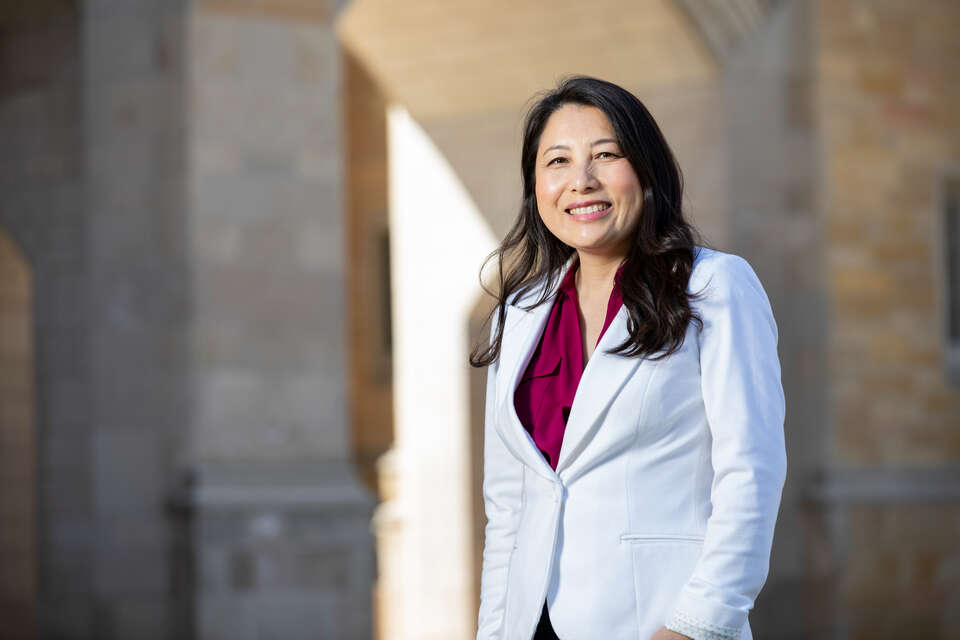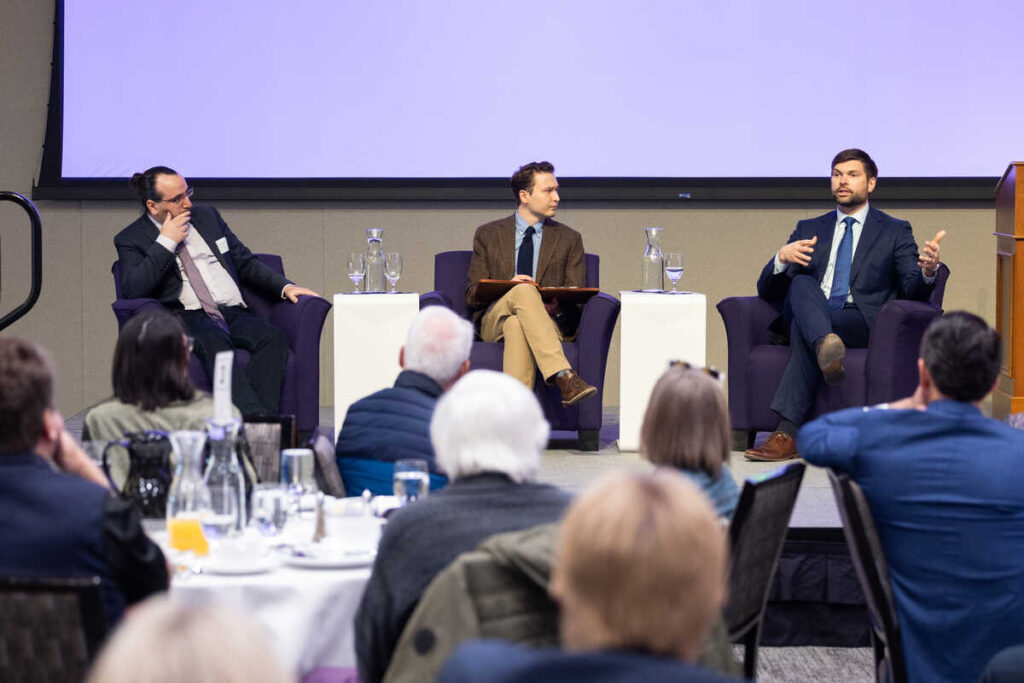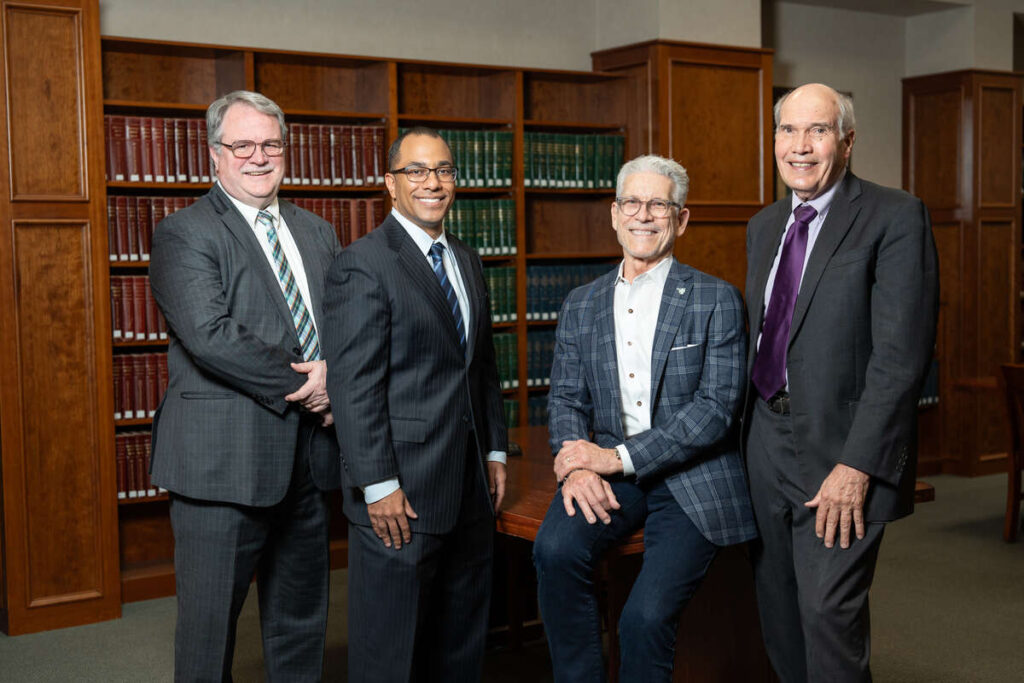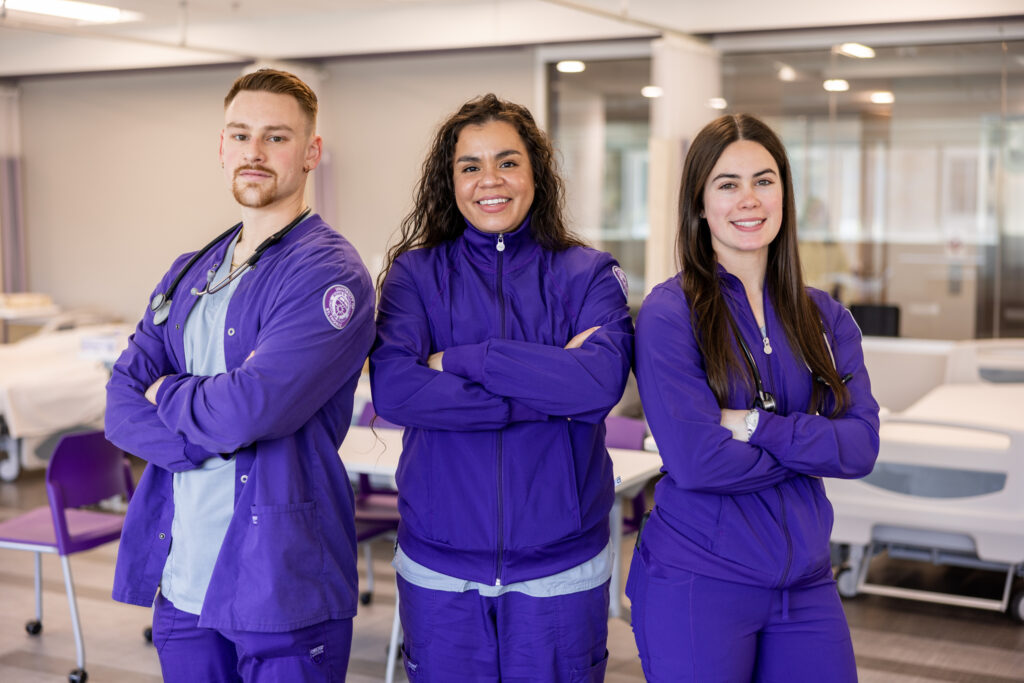Last year, St. Thomas leaders announced plans for the Center for Well-Being, a facility on campus offering an integrated approach to the health care needs of the St. Thomas community. We now have more details about Well-Being, including opening dates.
Located at 35 South Finn Street (between St. Paul’s north and south campus), Well-Being will be home to three main partner areas – Counseling, Health Services, and Health Promotion. The Health Promotion components include health education, resilience, and violence prevention. The Center’s mission will be to enhance a healthy and inclusive campus culture through collaboration, comprehensive health promotion and compassionate care that promotes lifelong well-being.
With a vision of a healthy and vibrant St. Thomas community fully supported by compassionate, equitable, and empowering education and care, the Center for Well-Being core values include access, empowering education, inclusive dialogue and innovative solutions.
The new Well-Being facility will open in stages. Opening dates are:
- Monday, Dec. 9 – Counseling and Psychological Services and Health Promotion
- Monday, Jan. 13 – Health Services
The new Center has a footprint of nearly 20,000 sq. ft. Health Services will expand their capacity to 15 exam rooms, and Counseling will expand to 14 therapy rooms. Health Promotion (formerly the Wellness Center and the Office of Violence Prevention and Awareness) will continue to provide health education and wellness programming with an expanded focus on resilience.
“We are so excited to see the vision of an integrative, holistic, population-based approach to health and well-being come to fruition here at the University of St. Thomas,” Madonna McDermott, executive director of the Center for Well-Being, said. “Bringing together the skill and expertise of multiple disciplines enhances our ability to work together to improve the health of individuals and our community, promote a healthy campus culture, support students in thriving academically, and encourage lifelong well-being.”
Get to know three new faces of the Center for Well-Being:

Luis de Zengotita
Luis de Zengotita
Director of Operations
I am responsible for ensuring the efficiency and effectiveness of the processes at the Center for Well-Being across our partner areas. As we enter an integrated model, we want to make sure community members have a seamless experience as they receive care at the center and transfer between our partner areas. We want to make sure our integrated model really helps support all facets of our community’s well-being.
What excites you about the Center for Well-Being?
The approach of integrated and holistic care continues to be on the cutting edge for college health and well-being. I am excited to be a part of the inception of this Center that looks at the whole person and provides care and support in an integrated way. This allows our various partner areas to bring their expertise to the table and give our community high quality, coordinated, and multidisciplinary care.
The expansion of services that we will be able to offer is also exciting! Adding case management, behavioral health and multicultural counseling will expand and deepen the array of care interventions our teams is able to perform.
What will the Center for Well-Being add to the St. Thomas community?
It’s a big deal that students can come to one integrated practice to take care of their well-being. Being in different locations and requiring a referral between services (e.g., primary care clinic to counseling) can create a barrier that will no longer exist in our Center.
Additionally, the Health Promotion partner area will offer the community events and programs that help promote a healthy lifestyle and long-term well-being. As the old saying goes, ‘An ounce of prevention is worth a pound of cure!’ By providing educational community events and programs (e.g., exercise, nicotine cessation, nutrition, personal safety), we can have a large impact on the health of the St. Thomas community.
What are you most looking forward to when it comes to working with St. Thomas students?
Being in college is one of the most exciting and challenging phases of many people’s lives. We really have an opportunity to teach students the skills to promote their own well-being, whether it’s in the domain of physical, mental, emotional or spiritual health. I am really looking forward to our opening when we start having students visit and they can provide us feedback. The Center is really part of our shared mission for the common good, and it will be exciting to see all of our planning come to life in service of our student body!

Melanie Tucker
Melanie Tucker
Director of Health Promotion, Resilience and Violence Prevention
Health Promotion is one of the partners in the Center for Well-Being and we will provide comprehensive health promotion, education and outreach programs to support and improve our student’s overall health and well-being. Our programs will cover topics such as alcohol use, resilience, prioritizing sleep, violence prevention, sexual health, physical activity, nutrition and various other health areas.
What excites you about the Center for Well-Being?
I am excited about the integrated model the Center for Well-Being will provide. Just the proximity of our services will allow us to work closely with the students and provide quality comprehensive care and health education. I look forward to working with center partners to provide campus-wide programs that enhance student’s holistic well-being.
What will the Center for Well-Being add to the St. Thomas community?
The Center for Well-Being will bring student health, counseling services and health promotion together under one roof, which will allow students to participate in multiple services without running all over campus. A student can see their health provider and then drop into the Health Promotion area to practice mindfulness meditation or yoga.
What are you most looking forward to when it comes to working with St. Thomas students?
I am particularly excited to work with our students, faculty and staff on the topic of resilience. Resilience is a person’s ability to cope or adapt to setbacks or difficult times. Our resilience education and wellness coaching program will assist students in identifying internal factors that influence stress and teach skills for building and expanding their strengths. Our focus is to support and encourage students to take steps toward a healthier and happier life.

Phillip Rosier
Phillip Rosier
Counselor – Multicultural Specialist, Counseling and Psychological Services
My role at the Center for Well-Being is to provide counseling services to University of St. Thomas students through Counseling and Psychological Services. The counselors and I provide individual, group and crisis counseling. We also provide student outreach and partnerships with various departments in the university community. Specifically, my role as multicultural counselor is to support outreach to students of color at the University of St. Thomas. Historically, students of color are less likely to utilize counseling services across most college campuses. In this position, I have the opportunity to assist with providing support to students of color who may not otherwise receive counseling services.
What excites you about the Center for Well-Being?
The Center for Well-Being is an opportunity to provide several support services in one area. Students will benefit from increased coordination of care between health-related staff and a more integrated model of care. Students will also benefit from new integrated programming. As a staff member of the Center for Well-Being, I am excited about the opportunity to collaborate, support and learn from my colleagues.
What will the Center for Well-Being add to the St. Thomas community?
The Center for Well-Being will add depth to students’ care. Students will be able to participate in Health Services, Counseling, Health Promotion and Violence Prevention all under one roof.
What are you most looking forward to when it comes to working with St. Thomas students?
Students come with a plethora of experiences and knowledge. I look forward to learning from students and providing support to students. My hope is to help facilitate a student’s ability to find balance in their life by understanding and knowing themselves.
